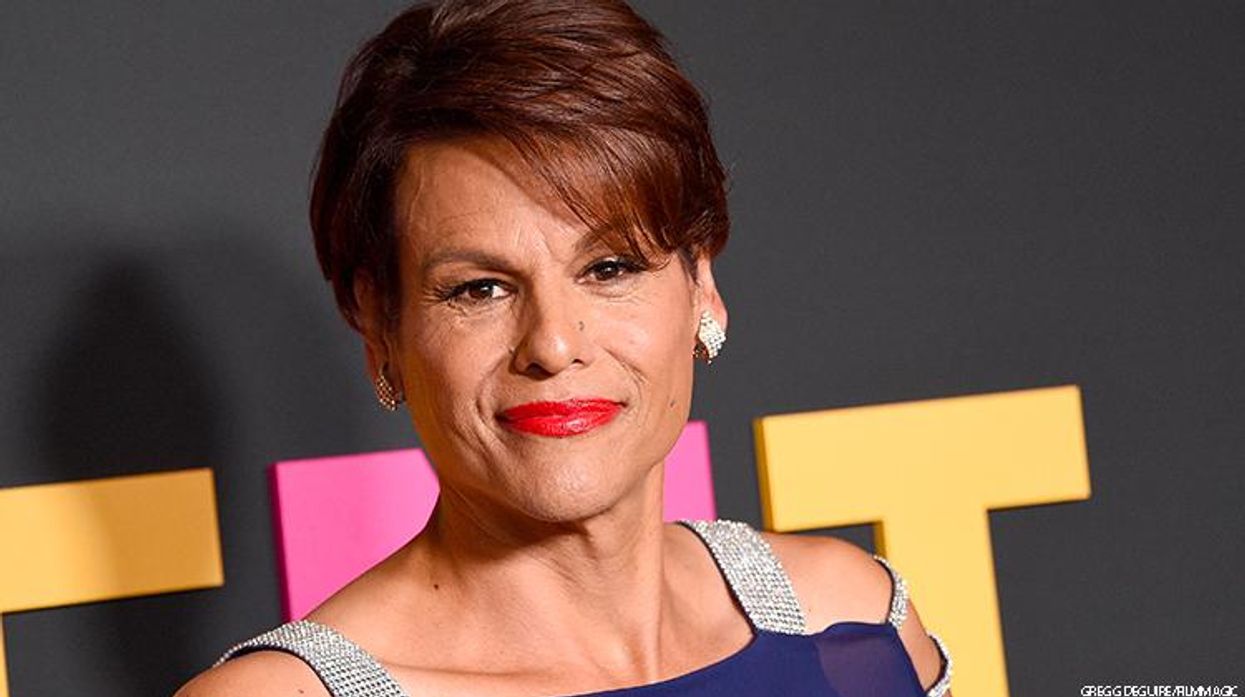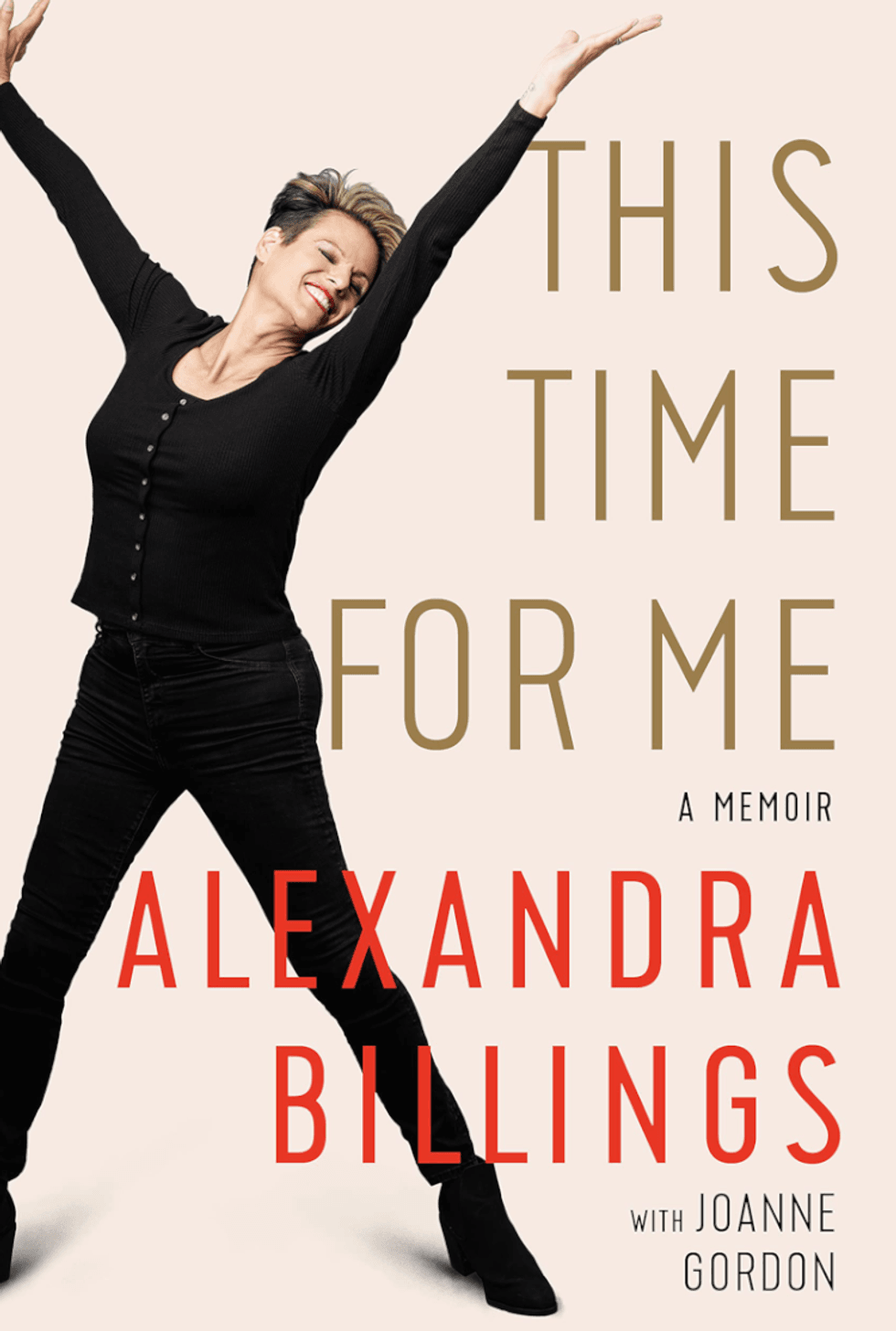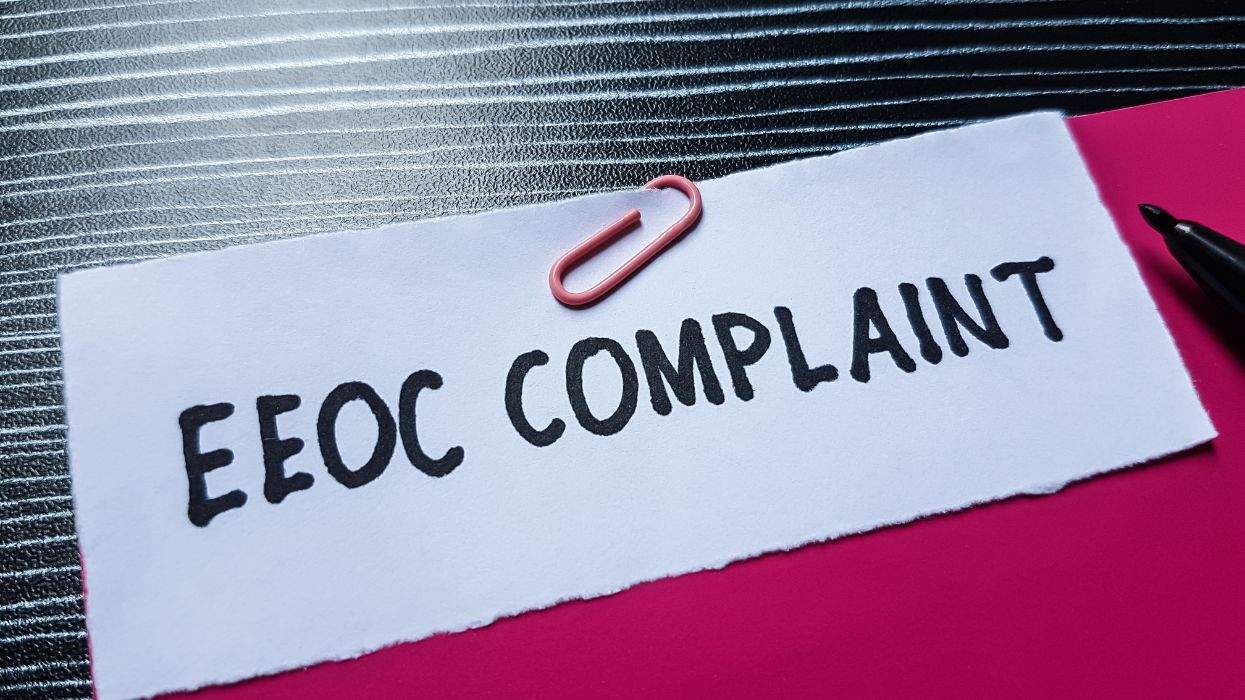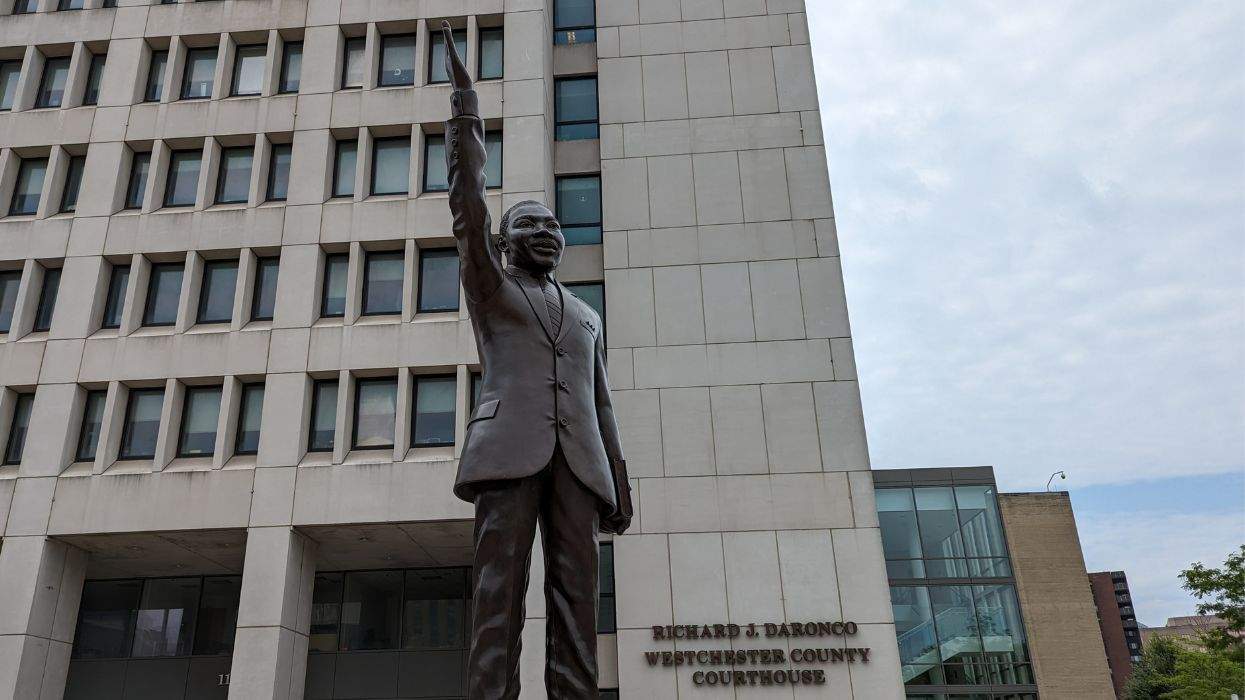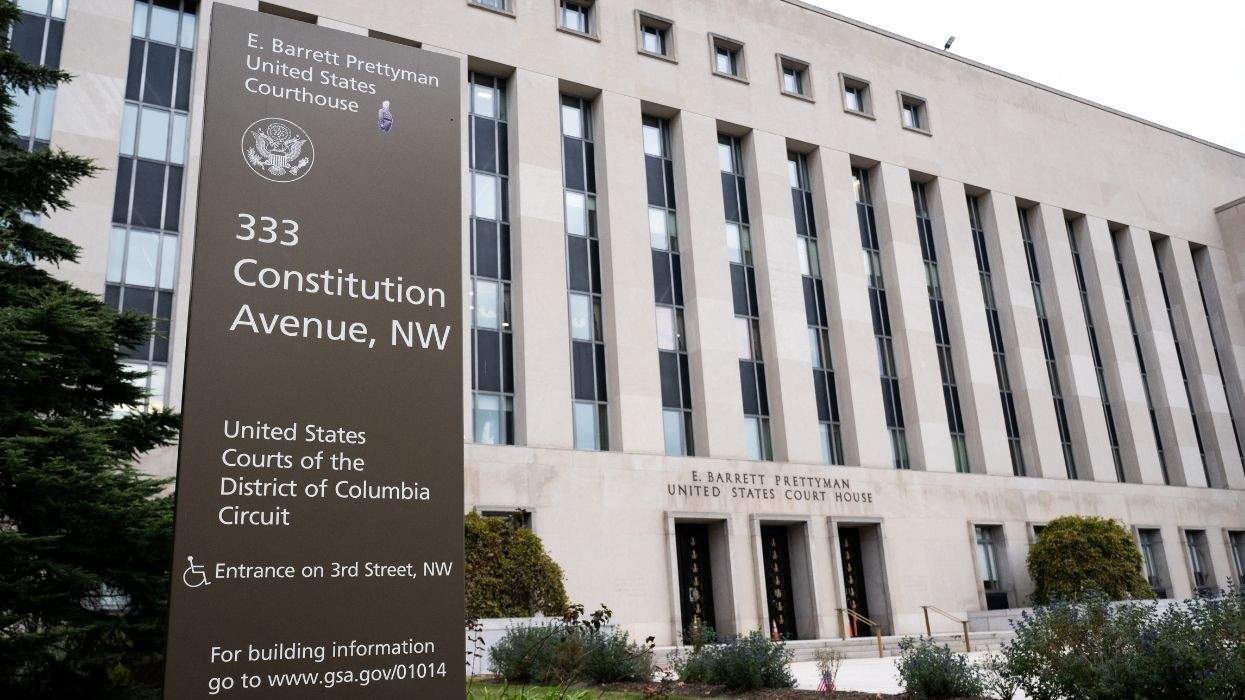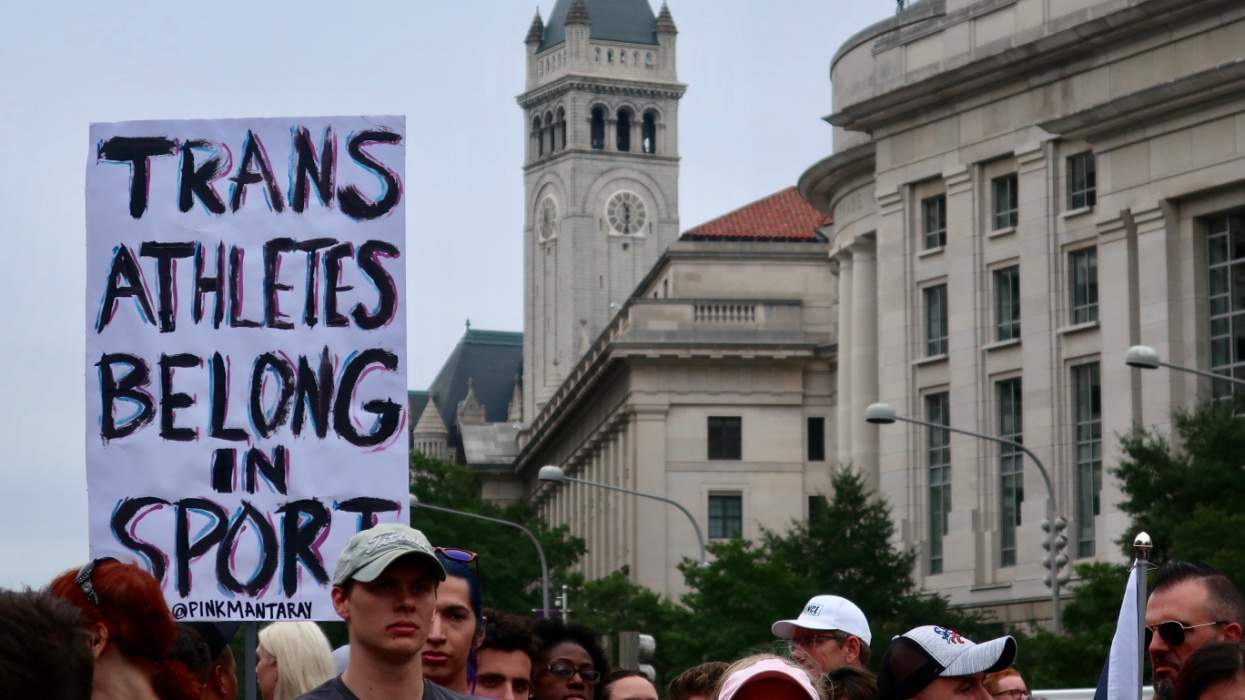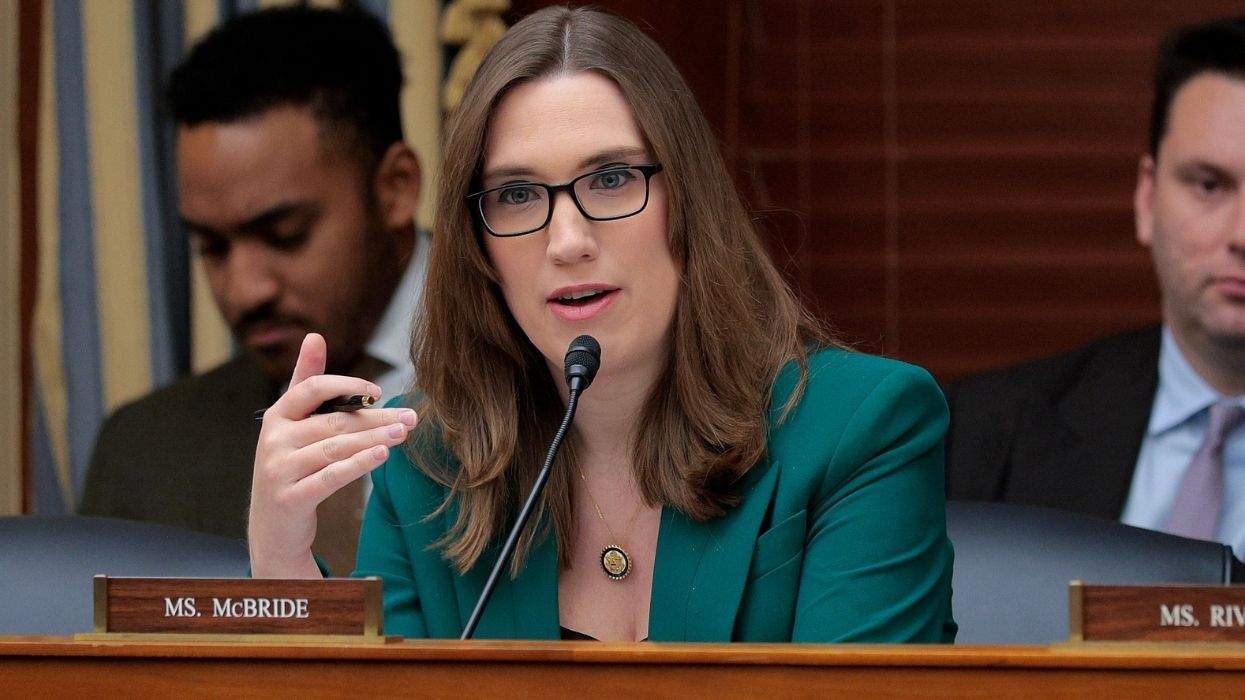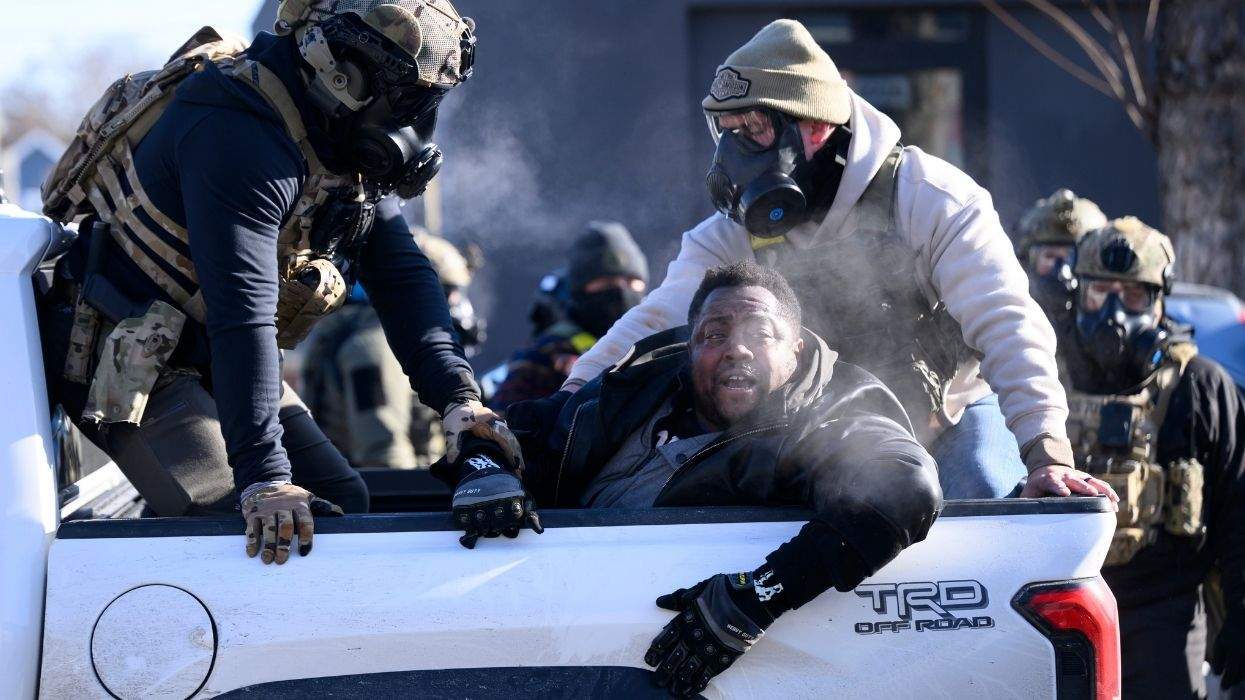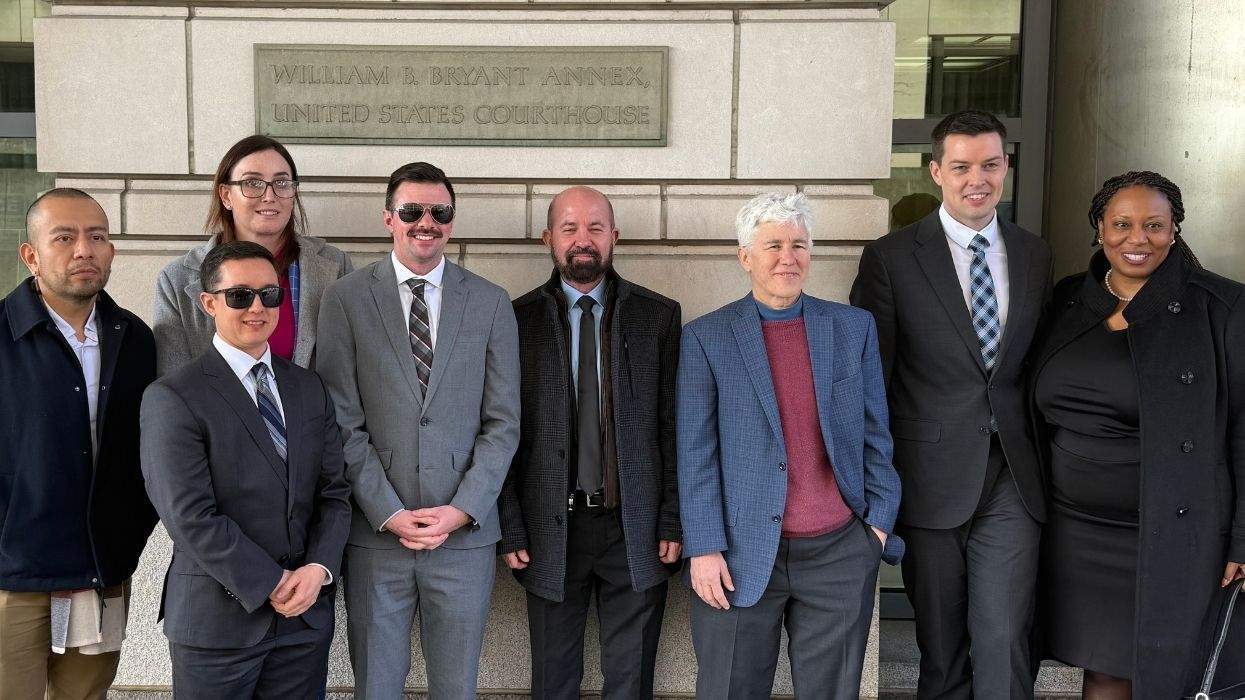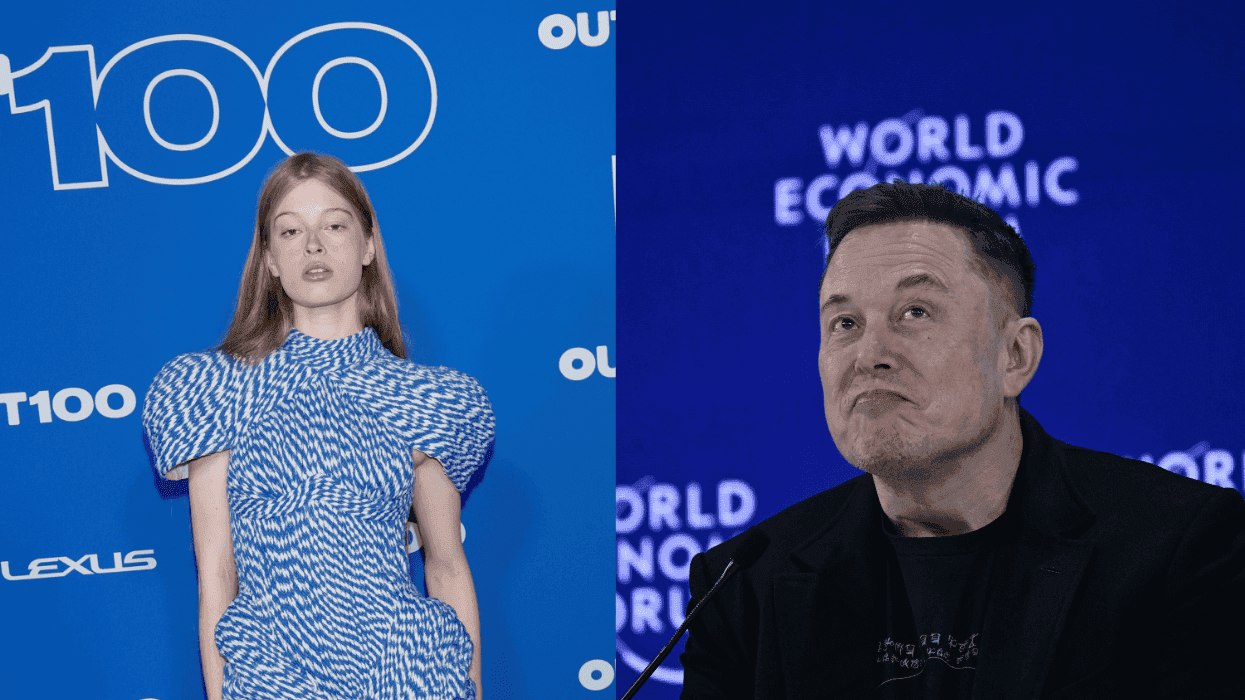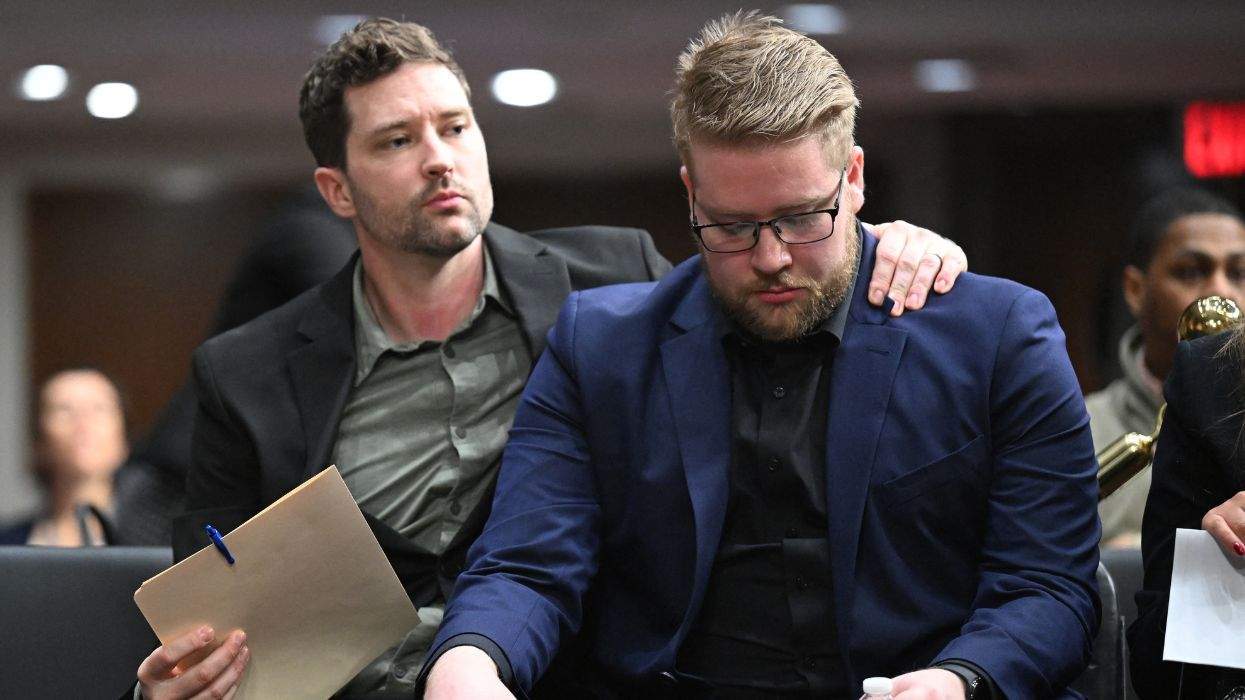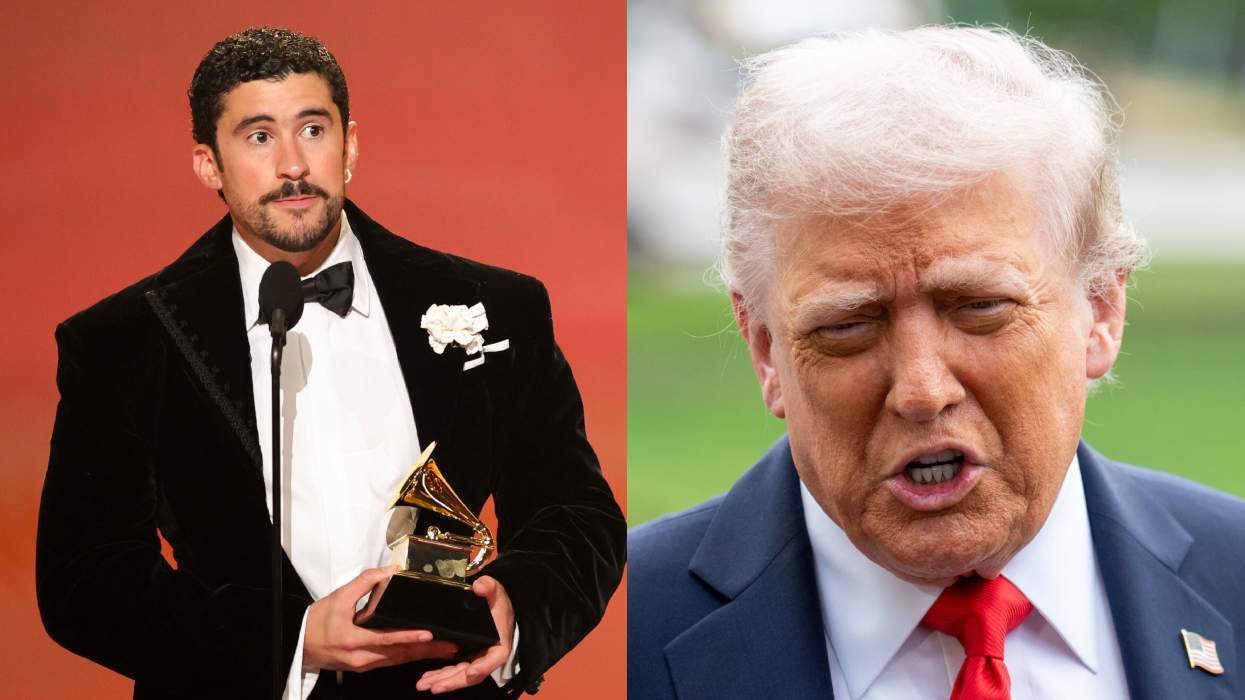Alexandra Billings is redefining what is possible for trans people in Hollywood. Before making a name for herself in the Chicago theatre scene and landing her breakout role in the TV show, Transparent, Billings was a showgirl and sex worker who struggled with addiction. "I ate, I breathed oxygen, I had sex, and I did drugs, all with great, reckless abandon," she says.
The transgender actress is also living with HIV and experienced homelessness for a time. Historically, society has not lifted up someone like Alexandra Billings. In this way, she's establishing a new precedent, proof that a career in Hollywood and on Broadway is possible, no matter what one's personal history looks like.
Having just completed a run as Madame Morrible in Wicked, Billings can currently be seen in The Conners on ABC and has released a memoir, This Time For Me (out now). With her overwhelming wit and candor, she details her historic career in the year's most exciting addition to the trans literary canon.
Alexandra Billings joins the LGBTQ&A podcast to talk about the community of trans women she found while working as a showgirl in Chicago, getting sober, and the complicated legacy of Transparent.
You can listen to the full interview on Apple Podcasts and read excerpts below.
Jeffrey Masters: When you were performing in the '80s in Chicago, you described the showgirls you worked with as "your first great teachers". Were they teaching things about gender or about life in general?
Alexandra Billings: Yes and yes. If you talk to trans women who have transitioned later in their life, the one thing they miss is having other trans women around go, "Oh, don't do that." Or, "Don't put that on your face. That's a bad idea." Or, "Listen, we're going to go to the 7-Eleven all together in a big trans group so nobody gets hit." So you miss all that.
And I found them in my 20s. I really was raised by drag queens and trans women. That's who raised me. My parents gave me a couple of things, but I got all of my survival skills from my trans family. All of them. To this day I still use them.
JM: What were some of those skills?
AB: I know exactly where my line is, meaning I know exactly how much you can say to me, how you can treat me, and how you will speak to me before I will stop you. And I will stop you.
I was also taught by these women mindfulness, meaning I know how to assimilate in any situation, really. There really isn't a situation where I can't, even if it means shut up and listen, where I can't go, "Oh, I can survive this." I may not like it, but I know I can survive it.
JM: You also write that being trans at this time, you had two choices for your life: lip-synching in a club and having sex.
Regarding sex work, you wrote, "Before it fell apart and became an awful, degrading, and insidious nightmare, it was actually kind of funny." What was funny about it?
AB: Well, first of all, I didn't have a lot of sex. And that's true of most sex workers, strangely. When you see us on L.A. Law or those shows that have hookers on them, whatever those crime shows are...it's not like that. It's kind of like that, but it's not like that at all. I used to have a guy that used to come to my house and clean my bathroom on his hands and knees, dressed as a French maid, holding a toothbrush. And the only thing I had to do was come in occasionally and berate him with foul language. He paid me $2,000. To clean my bathroom. So I used to think to myself, This can't be that easy. It can't possibly.
JM: There's a way in which we talk about sex work today with the implication that it is only acceptable if it is survival sex work. I think it's necessary to say that this is a profession that you can also choose and that is acceptable, too. It seemed like you fell in the latter category.
AB: Absolutely. I was. I always had another job. But yeah, I did it because I really liked it. Also, as I got to make more money, I had clients that took me to the most fabulous places. They bought me incredible meals. They were really good conversationalists. I had politicians for clients. I had writers. I had all different kinds of people and so their friends were eclectic as well. So, a lot of these dinner parties that I would go to, there were some pretty fancy people there and so it was fun sometimes.
JM: During this time you were going by the name Shante. When did that name stop feeling like a fit?
AB: As soon as I got cast in Vampire Lesbians of Sodom, I knew that I didn't want to have that name. And it sounded like a stripper and that's not what I wanted to do. I considered myself a very serious artist and I said, "I don't want to see that: The Glass Menagerie starting Shante." Like, what? Are you out of your tree?
JM: As you started acting in Chicago, your transness was a big focus of the local theatre critics.
AB: Yeah. It was like, "Look, there's a trans person on stage," and not, "Look, she's a great actress or even a bad actress." It was no review. They didn't care if I was good or bad. That didn't matter to them. But one of the reviews I got, I played Madame Rose in Gypsy 100 years ago. I was way too young, but I'd like to do it again now that I'm older. But the review said...I'm paraphrasing, but, "One of the main problems is Alexandra Billings's manly gait."
I mean, they never would've said that if I was a cis actress. No matter how I walked, they never would've said it. It wouldn't have come up. It wouldn't have been an issue. But because they knew I was trans and I had a reputation in Chicago -- I was out, I was taking up an enormous amount of space -- they got triggered.
In Chicago, there wasn't another out trans actress, that I knew of anyway. Not one. Trace Lysette and I talk about this all the time because she was actually starting around the same time I was. And I think Laverne was too, actually. But around the same time, we all started and all three of us felt exactly the same. Because we didn't know each other, so we all felt completely isolated and completely alone. So I didn't have any comparison. I had no idea what the hell I was doing.
JM: You had gotten sober by then. At what point did your drinking and drugs become more than just recreation?
AB: My drinking and drug use was never recreation. No, I didn't go to parties and do a line of cocaine. That didn't happen to me. I wasn't one of those drug addicts. My addiction was a necessity. I ate, I breathed oxygen, I had sex, and I did drugs, all with great, reckless abandon. There was nothing casual. I wasn't one of those partygoers. I didn't do that. I went home. I had a group of friends and we did drugs for like, days. It was very serious, my drug-taking.
JM: I know sobriety isn't easy, but does it feel easier now?
AB: Well, I got sober and then I relapsed for almost a decade on pills, which I had never taken before. I wrenched my back in Chicago because everything's made of ice in Chicago. Everything. All the time. Constantly. And I slipped and wrenched my back. I was in terrible pain and I went to the doctor and I said, "I'm in terrible pain." And he said, "Here." That was back in the day when you could write a prescription for 90 Vicodin or something. They'd say, "Here, take these, and you'll feel fine." And I was like, "Well, okay. I really don't like to swallow pills, but okay."
By the time I was done, I was up to between 10 to 14 pills a day. And I had two doctors going at the same time, simultaneously. And I had a map, this is not a joke, a map of every 24-hour Walgreens, CVS, and Rite Aid in the Chicago area. So I didn't mess around is what I'm telling you.
Then I got sober the second time and this second time is very different than the first time. The first time I was like, I'm sober. This is so amazing. The sky is so beautiful. That was the first time. This time, I'm like, I feel everything. I'm enraged. I am fearful. I am curious. I have no idea what I'm doing. I feel everything intensely all the time.
JM: You eventually were cast in Transparent. The TV show's star, Jeffrey Tambor has had allegations of sexual misconduct and inappropriate behavior, some of which you corroborate in the book. That show was a game-changer for trans storytelling in Hollywood and I don't think we acknowledge that because of its association with Jeffrey Tambor. Are you able to separate him out from the show and its legacy, or does that tarnish the entire experience for you?
AB: I am able finally to be able to separate the two. I can do that easily. Jeffrey's behavior was abominable. And Trace Lysette and Van Barnes who initiated these accusations are absolutely right and correct, and I stand behind them 110%.
But the show, if you take it away from Jeffrey's shadow, is quite brilliant. And strangely, conversely, his performance is exquisite. It's extraordinary. I've never seen anything like it. I mean, it's now considered transphobic because he's a cis man and nowadays we would say, "Well, you should have said no." But you know, everything is time specific.
JM: Things were very different in 2014 when it premiered.
AB: Very, and I feel like if you're going to watch Transparent, the thing to do is to have a conversation. You have a conversation about what representation means, even if it's to yourself. What it means, what it means now, what it meant back then. I haven't watched Transparent in years, but I can look at it and go, this changed the trajectory. You and I wouldn't be talking right now if it weren't for Transparent. It literally changed the trajectory of my career.
And to be honest with you, I don't know that this is true, but I think Pose would not have happened without Transparent. And we have to be really clear. Pose was very specifically about the trans experience. Transparent was not. Transparent was about the Pfeffermans. It was not about the trans people. It opened the door and Pose busted down the walls.
JM: When I first brought up Transparent, your face dropped. Is it uncomfortable to talk about?
AB: No, no. Oh God, no. No. It's sad. It makes me sad. It's upsetting, because like I said, we should still be filming it. Not that I want to go back. I don't. I have an amazing career. I mean, if we were still filming Transparent, I wouldn't have been on Broadway, so I'm very grateful things worked out the way they did. But it's sad. It makes me very sad.
What I do when I talk about Transparent is, I go to so many places. I go to so many emotional places, and one of the great places for me and this is where I like to live, is the fact that I met the greatest people in my life. These people became my family: Kathryn Hahn, Amy Landecker, Judith Light, the Duplasses, Trace, Our Lady J. These people, this is not a joke, are part of my family. We still talk. We still see each other. And Joey [Soloway] and I are like one person. So a lot of stuff happens to me when this subject comes up.
JM: One of the most groundbreaking scenes in the show, for me, is the scene where you are naked and arguing with your boyfriend. We don't see trans people in relationships very often on TV. We also got to see you completely naked in a way where we weren't over-sexualizing you or making it a joke. What was your reaction when you first found read that scene?
AB: Well, it was my idea. The writers were very generous, as was Joey, and they asked us every season, "What do you want to do? If you have any ideas, please come and tell us. That's what we want to know."
And I wanted to be naked, but I didn't want to have sex. I didn't want somebody on top of me. I didn't want to make a bunch of faces. I didn't want to do any of that. I'm married, and I'm not particularly interested in doing sex scenes. This is not something I'm interested in doing.
So I walked in and I said, "I'd like to be naked." And they went, "Oh, topless." And I went, "No. No, I'd like to be naked." And everybody went, "Really?" I said, "Yeah. But I don't want to have sex. I don't want it to be a sex scene." And the writers all went, "All right. How's that going to happen?" So that part was the writers' genius and Joey's genius, of going, let's just have her be naked like you would be naked with a partner, and that way when she rolls over, we're not involved in that. We're involved in the relationship. It was brilliant.
JM: It's probably one of the first times that people have seen a naked trans body on-screen and the fact that it's just this woman living her life and arguing with her boyfriend, it was very normalizing.
AB: Yeah, it was pretty great. It was very difficult for me to shoot, much more difficult than I thought it was going to be. So I surrounded myself with a lot of trans women on set. I asked for that. I asked for very specific things. I asked for a closed set. I made sure that I had someone literally standing there with a robe. I mean, I had people taking care of me. So it was not easy to do, but I'm really glad we did it. And it was a group effort. It was an ensemble effort.
Click here to listen to the full interview with Alexandra Billings.
This Time For Me by Alexandra Billings is out now.
This is part of LGBTQ&A's new LGBTQ+ Elders Project. Click here to listen to an interview with the 87-year-old trans elder Barbara Satin.
LGBTQ&A is The Advocate's weekly interview podcast hosted by Jeffrey Masters. Past guests include Pete Buttigieg, Laverne Cox, Brandi Carlile, Billie Jean King, and Roxane Gay.
New episodes come out every Tuesday.
